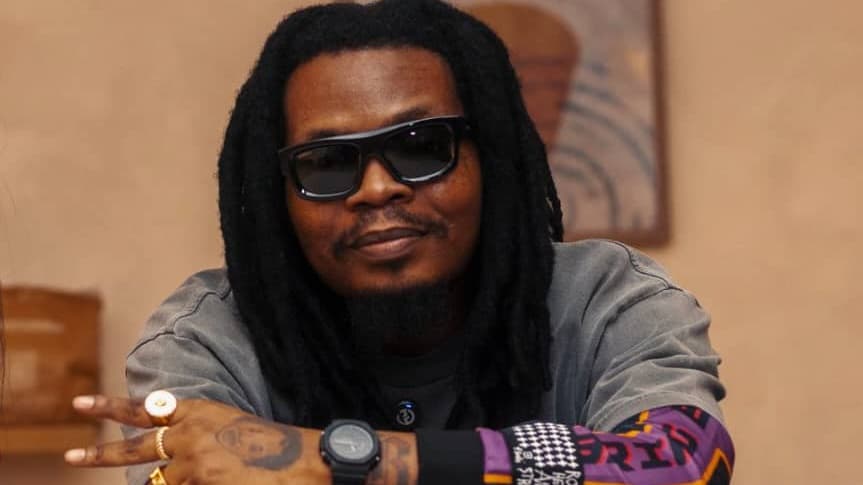Beyond Bars: Olamide’s Musical Evolution

Despite being hailed as Nigeria’s greatest rapper, Olamide rejects labels and redefines himself as a genre blending force in Afrobeat and street culture.
For over a decade, Olamide Adedeji, popularly known as Badoo, has carried the weighty crown of Nigeria’s greatest rapper a title many fans and critics agree he rightly deserves. From his raw, punchy Yoruba verses to his signature streetwise energy, Olamide built a legacy rooted in hip-hop. But if you think Olamide is just a rapper, think again. He’s made it clear time and time again: he refuses to be boxed in.
The Rise of a Street Rapper
Olamide’s musical journey began with “Eni Duro” in 2010, a powerful debut that introduced a young voice spitting fire in Yoruba. At a time when the Nigerian hip-hop scene was dominated by English speaking lyricists, Olamide broke the rules. He was raw, real, and unapologetically local. His debut album, Rapsodi (2011), painted the picture of a young Lagos hustler who understood the streets and could turn those stories into art.
His follow up albums, like YBNL (2012) and Baddest Guy Ever Liveth (2013), solidified his status as a rap icon. Songs like Voice of the Street, Durosoke, and Anifowose were layered with cultural references, proverbs, and lived experiences. He was the voice of a generation the guy who gave the streets a sound.
But as the years rolled by, something changed.
The Sound Shift: From Bars to Beats
By 2015, Olamide was no longer just rapping he was experimenting. Songs like Shakiti Bobo, Wo!, and Motigbana introduced heavy, dance driven beats that leaned more into street-pop and Afrobeats than traditional hip-hop.
This evolution wasn’t accidental. It was intentional.
Olamide once explained in an interview:
“I don't like to be boxed. I’m an artist. If I wake up today and I want to sing Fuji, I will. Tomorrow, I might feel like doing reggae, and I’ll do that too.”
The shift confused some fans and critics who were still clinging to the image of Olamide as a “rapper’s rapper.” But Baddo had outgrown that label.
Why Olamide Rejects the ‘Hip-Hop Artist’ Label
Despite being at the top of Nigerian hip-hop for years, Olamide has openly rejected the idea of being seen only through a rap lens. In 2025, during an interview with Grungecake, he addressed this directly:
“Sometimes, I don’t like to be boxed. I feel like Afrorap is a dope name for it, but it depends on the direction. Right now, I’m not doing Afrorap. Right now, I’m doing Afrobeats.”
This wasn’t just a case of switching sounds it was a deeper reflection of how African artists, especially Nigerian ones, often get trapped in foreign genre definitions. For Olamide, music is about expression, not labels.
He understands that the industry needs tags to classify sounds but he refuses to let those tags define him.
Olamide and the Birth of Modern Street-Pop
While many artists chase global sounds, Olamide built his empire from the grassroots up, and in doing so, he helped define and elevate a new genre: street-pop.
Street-pop isn’t just a sound it’s a culture. It’s the fusion of hip-hop, Fuji, highlife, Afrobeats, and street slang. It’s music that speaks directly to the bus conductor, the hairdresser, the mechanic, the student, the hustler.
In 2025, Spotify officially recognized Olamide as the “most influential street-pop artiste of his generation.” This wasn’t about how many rap bars he could deliver. It was about how deeply his music resonated with everyday Nigerians and how he turned that relatability into a musical movement.
Artists like Zlatan, Naira Marley, Bella Shmurda, Portable, and especially his YBNL signees like Asake and Fireboy DML are all part of the legacy he helped shape.
The YBNL Empire: Redefining Music Through Mentorship
Beyond his personal evolution, Olamide’s biggest flex might just be his role as a mentor and gatekeeper.
Through YBNL Nation, he has launched and guided the careers of artists across genres many of whom don’t fit neatly into the hip-hop mold either. Fireboy’s R&B-infused Afropop, Asake’s blend of Fuji and Amapiano, and Adekunle Gold’s alternative Afro-soul all bear the imprint of Olamide’s open-minded artistic vision.
He doesn’t just reject being boxed himself he’s actively breaking the box for others.
A Legacy Bigger Than Rap
So, is Olamide Nigeria’s greatest rapper? Arguably, yes.
But more importantly, he’s Nigeria’s most versatile music architect a creative who never allowed one genre to define him.
In a music industry that often pressures artists to “stay in their lane,” Olamide built a highway.
He gave the street a microphone.
He made local sound global.
He showed that evolution isn’t betrayal it’s growth.
Conclusion: Baddo Can’t Be Boxed
Olamide didn’t stop being a rapper he simply refused to be only a rapper.
He saw the bigger picture: that real greatness lies not in mastering one style, but in mastering the art of transformation.
In a world that loves to label artists, Olamide is one of the few who carved his own category.
Call him rapper. Call him pop star. Call him cultural icon.
Just don’t try to box him. Baddo na movement.